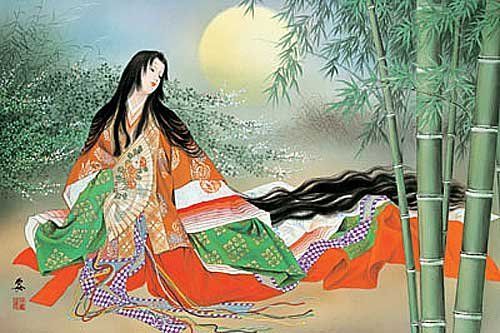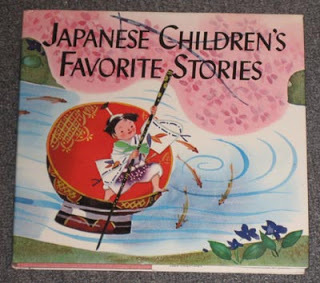In Kubo and the Two Strings what will be the price Kubo must pay to get his happy ending?
 Laika, the studio behind the stop-motion animated films, Coraline, Paranorman, and Boxtrolls, is unleashing Kubo and the Two Strings unto the world this weekend (as the summer movie season draws to a close). I haven't seen it yet, but I desperately want to so I will probably knock it off the checklist at some point (hopefully with a wonderful second person in tow). Both Coraline and Paranorman took me by surprise. These particular films featured incredible animation and razor-sharp script writing, which I wasn't used to outside of Pixar or Dreamworks. Paranorman in particular shocked me when one of the muscular and strong-chinned characters ended up being gay. The fact that it was no big deal was a nod to the fact that the world is changing, and the idea of having "gay" characters is no longer shocking or outrageous any more than casting Samuel L. Jackson in a film is shocking simply because he can say "Mother F*cker" like no other.
Laika, the studio behind the stop-motion animated films, Coraline, Paranorman, and Boxtrolls, is unleashing Kubo and the Two Strings unto the world this weekend (as the summer movie season draws to a close). I haven't seen it yet, but I desperately want to so I will probably knock it off the checklist at some point (hopefully with a wonderful second person in tow). Both Coraline and Paranorman took me by surprise. These particular films featured incredible animation and razor-sharp script writing, which I wasn't used to outside of Pixar or Dreamworks. Paranorman in particular shocked me when one of the muscular and strong-chinned characters ended up being gay. The fact that it was no big deal was a nod to the fact that the world is changing, and the idea of having "gay" characters is no longer shocking or outrageous any more than casting Samuel L. Jackson in a film is shocking simply because he can say "Mother F*cker" like no other.Kubo and the Two Strings though is different (and has more meaning) for me. From the trailers, it looks to be an homage to Japanese fairy tales, which are things that I grew up on (instead of the ones by Hans Christian Anderson or the Brothers Grimm). Japanese folk tales are quite different from the ones read by westerners. For one, western fairy tales tend to be gruesome. Think of Cinderella's sisters lopping off parts of their feet to fit into a shoe, and you'll understand what I'm saying. The Japanese folk tales (on the other hand) usually have some kind of moral to them. Several feature a man saving some kind of spirit only to have them return as a beautiful woman who marries the man. The tragedy of course is that the man discovers this and in so doing, breaks the spell and experiences loss when the woman has to leave.
 Princess Kaguya (かぐや姫) - is the main character of one of the oldest known Japanese folk tales, titled Taketori Monogatari (竹取物語). The story depicts the life of a young girl who was discovered as a baby inside a stalk of bambooJapanese folk tales also feature lots of talking animals. In Kubo and the Two Strings, the trailers hint that there's going to be at least one talking monkey and one talking beetle. Rarely, however, do Japanese fairy tales complete with happy endings, and I expect Kubo to be no different. Happy endings are more of a "western" tradition. In the Land of the Rising Sun, princesses can lead melancholy lives, animals can be heroes, and many stories end with a sad turn of events. I think that these kinds of stories are more realistic: in life we don't always get what we want. Furthermore, there is always a price to pay when it comes to happiness.
Princess Kaguya (かぐや姫) - is the main character of one of the oldest known Japanese folk tales, titled Taketori Monogatari (竹取物語). The story depicts the life of a young girl who was discovered as a baby inside a stalk of bambooJapanese folk tales also feature lots of talking animals. In Kubo and the Two Strings, the trailers hint that there's going to be at least one talking monkey and one talking beetle. Rarely, however, do Japanese fairy tales complete with happy endings, and I expect Kubo to be no different. Happy endings are more of a "western" tradition. In the Land of the Rising Sun, princesses can lead melancholy lives, animals can be heroes, and many stories end with a sad turn of events. I think that these kinds of stories are more realistic: in life we don't always get what we want. Furthermore, there is always a price to pay when it comes to happiness.
In Japan, both Buddhism and Shinto are very popular religions. The Japanese practice both in a kind of harmonious spirituality, and it reflects very much in their folk tales. Shinto has within its teachings a belief that all living things have a spirit, while Buddhism addresses the dead and the afterlife. So Japanese stories tend to be focused on mental gymnastics and a person's connection to the natural world and the drama of the supernatural. For what it's worth, Kubo and the Two Strings looks like it is awash in eye candy, and the battle scene (already in theaters as a featurette) of Kubo fighting a giant skeleton looks awesome. No matter how it ends, the movie promises to be a glorious artistic achievement--yet another win for Laika ensuring that there will be more to come from this little animation studio that could.
Published on August 16, 2016 23:02
No comments have been added yet.



